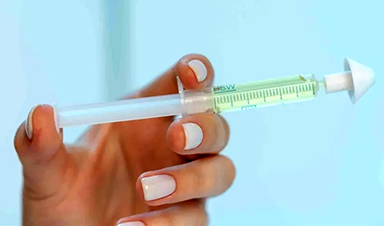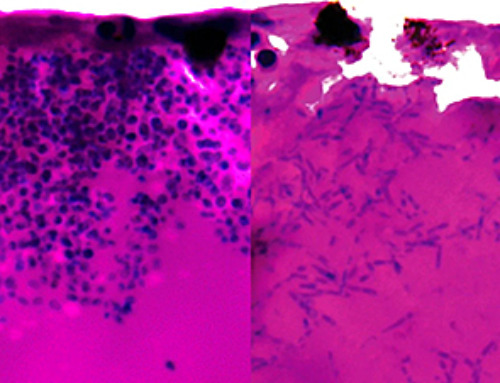In a recent study published in Science Advances, researchers evaluated the impact of mucosal versus intramuscular vaccine immunization on airborne infection and transmission of severe acute respiratory syndrome coronavirus 2 (SARS-CoV-2) in Syrian hamsters.
Background
SARS-CoV-2 causes coronavirus disease 2019 (COVID-19), identified in 2019, with vaccines developed by 2020 targeting the virus’s spike protein, showing 75-95% effectiveness against similar variants.
However, variants like Omicron reduced vaccine efficacy, leading to vaccine updates. SARS-CoV-2 primarily spreads through the air but can also be transmitted via contact.
Hamster studies on vaccine impact often focus on initial transmission, not reflecting real infection scenarios or assessing secondary transmission.
Further research is needed to fully understand mucosal vaccines’ long-term efficacy and mechanisms in preventing SARS-CoV-2 transmission in diverse populations and real-world settings.
About the study
This study evaluated the effects of mucosal and systemic immunization on SARS-CoV-2 transmission using Syrian hamsters. Hamsters were vaccinated intranasally with chimpanzee adenoviral-vectored vaccine (ChAd-CoV-2-S) or intramuscularly with remnant BNT162b2 (BioNTech and Pfizer COVID-19 vaccine) and then exposed to SARS-CoV-2-infected hamsters.
Viral titers in the upper and lower airways were measured to determine transmission. Primary contact hamsters that remained uninfected were excluded. Hamsters were randomly assigned to vaccination or donor/contact groups.
Vero cells expressing human transmembrane protease serine 2 (TMPRSS2) and angiotensin-converting enzyme 2 (ACE2) were cultured to prepare the virus.
Recombinant SARS-CoV-2 (WA1/2020 D614G) was confirmed by sequencing. All procedures involving SARS-CoV-2 were conducted in Biosafety Level 3 (BSL-3) facilities.
News
Scientists Unlock a New Way to Hear the Brain’s Hidden Language
Scientists can finally hear the brain’s quietest messages—unlocking the hidden code behind how neurons think, decide, and remember. Scientists have created a new protein that can capture the incoming chemical signals received by brain [...]
Does being infected or vaccinated first influence COVID-19 immunity?
A new study analyzing the immune response to COVID-19 in a Catalan cohort of health workers sheds light on an important question: does it matter whether a person was first infected or first vaccinated? [...]
We May Never Know if AI Is Conscious, Says Cambridge Philosopher
As claims about conscious AI grow louder, a Cambridge philosopher argues that we lack the evidence to know whether machines can truly be conscious, let alone morally significant. A philosopher at the University of [...]
AI Helped Scientists Stop a Virus With One Tiny Change
Using AI, researchers identified one tiny molecular interaction that viruses need to infect cells. Disrupting it stopped the virus before infection could begin. Washington State University scientists have uncovered a method to interfere with a key [...]
Deadly Hospital Fungus May Finally Have a Weakness
A deadly, drug-resistant hospital fungus may finally have a weakness—and scientists think they’ve found it. Researchers have identified a genetic process that could open the door to new treatments for a dangerous fungal infection [...]
Fever-Proof Bird Flu Variant Could Fuel the Next Pandemic
Bird flu viruses present a significant risk to humans because they can continue replicating at temperatures higher than a typical fever. Fever is one of the body’s main tools for slowing or stopping viral [...]
What could the future of nanoscience look like?
Society has a lot to thank for nanoscience. From improved health monitoring to reducing the size of electronics, scientists’ ability to delve deeper and better understand chemistry at the nanoscale has opened up numerous [...]
Scientists Melt Cancer’s Hidden “Power Hubs” and Stop Tumor Growth
Researchers discovered that in a rare kidney cancer, RNA builds droplet-like hubs that act as growth control centers inside tumor cells. By engineering a molecular switch to dissolve these hubs, they were able to halt cancer [...]
Platelet-inspired nanoparticles could improve treatment of inflammatory diseases
Scientists have developed platelet-inspired nanoparticles that deliver anti-inflammatory drugs directly to brain-computer interface implants, doubling their effectiveness. Scientists have found a way to improve the performance of brain-computer interface (BCI) electrodes by delivering anti-inflammatory drugs directly [...]
After 150 years, a new chapter in cancer therapy is finally beginning
For decades, researchers have been looking for ways to destroy cancer cells in a targeted manner without further weakening the body. But for many patients whose immune system is severely impaired by chemotherapy or radiation, [...]
Older chemical libraries show promise for fighting resistant strains of COVID-19 virus
SARS‑CoV‑2, the virus that causes COVID-19, continues to mutate, with some newer strains becoming less responsive to current antiviral treatments like Paxlovid. Now, University of California San Diego scientists and an international team of [...]
Lower doses of immunotherapy for skin cancer give better results, study suggests
According to a new study, lower doses of approved immunotherapy for malignant melanoma can give better results against tumors, while reducing side effects. This is reported by researchers at Karolinska Institutet in the Journal of the National [...]
Researchers highlight five pathways through which microplastics can harm the brain
Microplastics could be fueling neurodegenerative diseases like Alzheimer's and Parkinson's, with a new study highlighting five ways microplastics can trigger inflammation and damage in the brain. More than 57 million people live with dementia, [...]
Tiny Metal Nanodots Obliterate Cancer Cells While Largely Sparing Healthy Tissue
Scientists have developed tiny metal-oxide particles that push cancer cells past their stress limits while sparing healthy tissue. An international team led by RMIT University has developed tiny particles called nanodots, crafted from a metallic compound, [...]
Gold Nanoclusters Could Supercharge Quantum Computers
Researchers found that gold “super atoms” can behave like the atoms in top-tier quantum systems—only far easier to scale. These tiny clusters can be customized at the molecular level, offering a powerful, tunable foundation [...]
A single shot of HPV vaccine may be enough to fight cervical cancer, study finds
WASHINGTON -- A single HPV vaccination appears just as effective as two doses at preventing the viral infection that causes cervical cancer, researchers reported Wednesday. HPV, or human papillomavirus, is very common and spread [...]





















